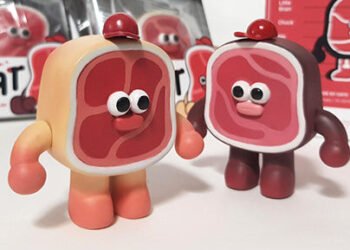[ad_1]
If you’re a cat parent, you’re probably familiar with this situation. You’re sitting on the couch and suddenly what feels like a tiny piece of sandpaper is scratching your hand repeatedly. Whether you find this cat tongue bath cute or annoying, it probably has you wondering, “Why does my cat lick my hand?” Are they trying to give you tips on how to groom a cat?
We may never know the answer to “Why does my cat lick me?” for sure, but there are a few possibilities we can speculate about. We’ll also go over whether a cat licking you can spread germs and why cats’ tongues feel so rough!
What Does It Mean When a Cat Licks You?
If you asked, “Why does my cat lick my face?,” the answer you’re probably hoping for is that your cat is giving you kisses. Well, the good news is that may be true. Your cat could be showing you affection with their licks. Keep in mind that if your cat licks you on the lips and you give them a kiss back, you are probably encouraging the behavior, so they’ll keep doing it. There is some risk with kitty kisses as you’ll see below.
Cat licks can also be your cat grooming you — demonstrating that you’re part of their family and share a social bond with them. They’re grooming you just like mother cats groom their kittens. Aww, so sweet. Similarly, your cat licking you could be to mark their territory. Yep, you’re their human and no one else’s — which is fine, unless you have other cats in your home. Either way, it’s a better way to mark their territory than spraying!
If your cat starts licking you after you’ve been working out or when you come inside on a hot day, it might be the taste of you that they like. As weird as that sounds, sweat leaves a salty flavor on your skin that might be oh-so-yummy for your cat. They may also like the taste of the lotion you’re wearing or the burrito sauce that dripped onto your hand. If your cat likes to lick your skin, make sure you don’t let them lick anything that could be toxic to cats like medicated ointment. Keep those areas covered.
Some Cats Lick When Stressed or in Pain
Sometimes cat licks can help tell you that all is not well with your cat. Excessive licking of either you or themselves is a common sign that your cat is anxious or stressed. Think about any changes in your cat’s routine that may be causing stress or anxiety, like the addition of other animals to your home (especially other cats), a change in their environment (e.g., moving house) or the presence of other cats in their territory. You should also check that their basic environmental needs are being met. If you notice your cat’s licking behavior has increased or they’re licking a particular spot on their body, it’s a good idea to have your veterinarian check them out. Cats are very good at hiding their pain, and that may be the cause of their excessive licking.
If your cat’s licking you and a pungent smell (that isn’t the whitefish dinner they just ate) is lingering in the air, your cat may have bad breath. This can be a sign of dental disease, along with drooling, pawing at their mouth and grooming less frequently. Cats need regular dental care, so if you notice these symptoms, have your veterinarian check them out.
Why Does It Hurt When My Cat Licks Me?
Your cat’s tongue feels rough because it’s covered in tiny barbs made out of keratin — the same material your fingernails and hair are made from. The backward-facing barbs on your cat’s tongue are called papillae and act like a hairbrush, helping your cat to thoroughly groom their fur and remove dirt.
When cats groom themselves, the papillae grab loose hair and pull it into their mouths, which can lead to hairball formation. Check out these articles if you’re wondering if hairballs are normal for your cat or if you need help controlling hairballs.
Why Does My Cat Lick Me Then Bite Me?
There are a few reasons why your cat may lick and then bite you, ranging from “I love you” to “Enough! Leave me alone.” On the friendlier side, your cat could be giving you love bites (this is normal behavior between cats) or nibbling you as part of your “grooming” session. On the other end of the scale, biting can be a sign of stress in cats or that they’re done with petting and they want you to stop. Make sure you’re petting your cat in the correct spot — some cats are very particular about where they’re touched. A cat’s tail whipping back and forth is another good sign they’re annoyed and done with pets for now. This article has some tips on untraining your cat from biting you.
Can You Get Sick from Your Cat Licking You?
Let’s stop and think about what cats lick and put in their mouths. Cats are fastidious groomers, and that includes licking their (ahem) nether regions. If your cat has outside access, they could be putting dead animals or feces in their mouth. It’s a myth that dogs have cleaner mouths than humans, and cat mouths aren’t “clean” either.
Cat saliva can contain bacteria, yeast, viruses and parasites that can pose a risk to humans. While these organisms aren’t usually absorbed through the skin when cats lick people on the arm or leg, some organisms are more easily transmitted through an open wound in the skin or the mucous membranes of the mouth, nose or eyes. The risk of catching something if you let your cat lick you or give you kisses is relatively low, but it’s still good to be aware of the risk, especially if you are immunocompromised.
How to Get Your Cat to Stop Licking You
An occasional lick from your cat probably doesn’t bother you, but if it’s becoming a common behavior that you don’t appreciate, there are some things you can do to help stop your cat from licking you. Try distracting them with cat toys or playing a game. Or pick them up and give them some cuddles. Don’t use food to distract them — otherwise they’ll learn that their licking behavior results in a tasty treat and they’ll do it more.
There are many reasons why your cat likes to lick you. For some cat parents, the licking behavior might be a sign of affection and that their cat loves them. But not all cats are licking out of love — it might be a compulsive behavior related to the cat’s anxiety or stress issues. Listening to your cat’s sounds and looking at your cat’s body language and other behaviors can help you understand why your cat is licking you.
[ad_2]

















